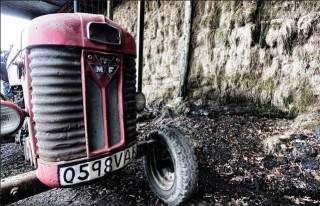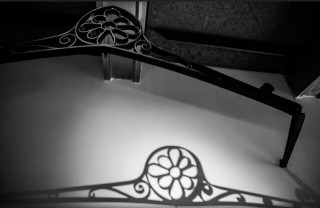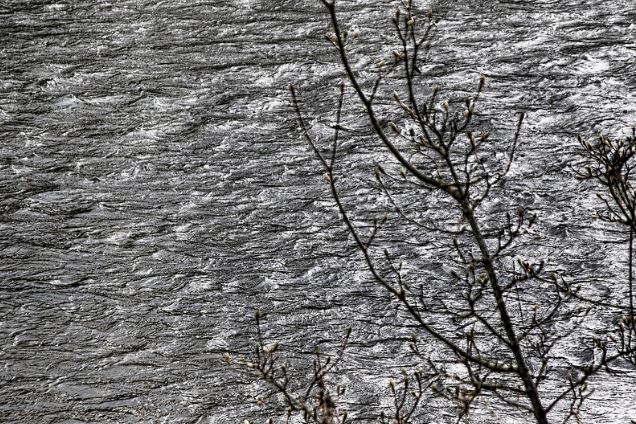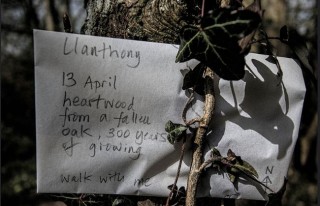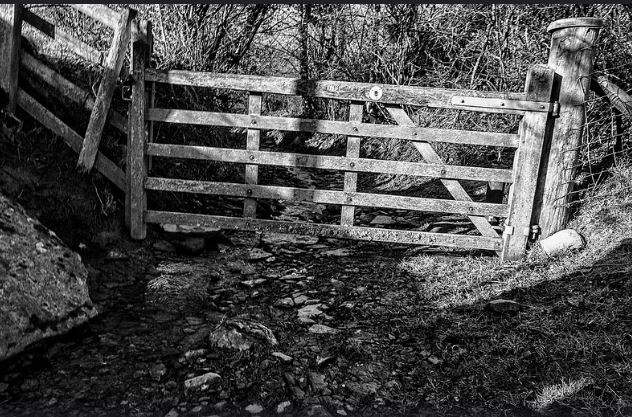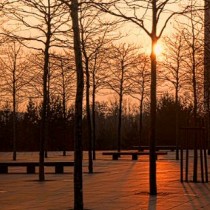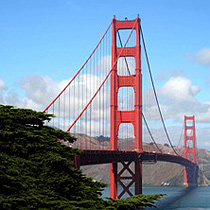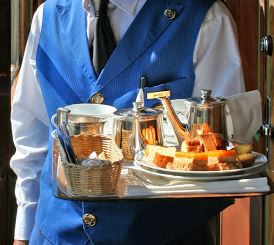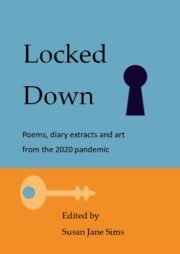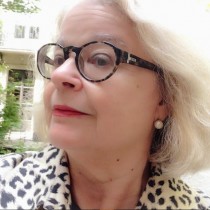 Guest ediitor: Susan Castillo Street
Guest ediitor: Susan Castillo Street
Poems by Lizzie Ballagher, Gill Lambert, Annest Gwilym, Tony Hendry, Julie Sampson and Pauline Harrowell
Photographs by Chris Sims. Bunty image Clipart.
• Archive of all Poetry Space showcases
Editor’s overview
I was very impressed indeed by the quality of the poems submitted to the Poetry Space Summer Showcase. Choosing only ten was not an easy task! In the following poems, I found intelligence, poetic craft, and the ability to surprise and delight the reader.
Please scroll beyond the poems for my feedback.
————————————————————————————————————————————-
Blackcurrants
I hold the weight of light upon my palms:
Sprays and strands of wine-dark pearls strung
Perfectly from alchemy of rain & sun,
The pulse of summer’s hot & running blood
Shining, clotting on my fingers.
The heat of August sweetens, stains my hands
With fragrant orbs: purple, jewel-like (however small).
For now, I am summer’s queen again,
High on the handle-bar, riding aloft
Between rows & ripened rows of blackcurrants
On my father’s rotovator: around me the whiff
Of petrol & oil, the comfortable putt-putt
Of the churning motor as it chugs & chews
Through weeds & trampled ground.
With grubby hands I grab for currants,
Snatch at the light between the leaves.
Both escape my clutching fingers.
The dapple & ripple of green-starred growth
Flickers, skitters between them with nothing left
But the crimson smear of juice upon my skin:
The dazzling, fizzing, dizzy taste of fresh blackcurrants.
Lizzie Ballagher
Bunty
The summer I was nine, I stumbled on her,
hiding in the cupboard with the doors
that had been chopped up for firewood one winter.
She came from a world where girls made homes,
cooked and had adventures wearing ‘slacks’.
She offered tips on babysitting, jam making,
spotting garden birds and identifying British flora.
Old and musty, her thick buff pages bore blots of tea,
a smudge of coal – fingerprints
of the sixties pressed into her pages.
I spent hours with her, my only interruptions
mid-day mince and a sweet-run to the shop with twenty-p.
I cheated on her with St Clare’s and The Chalet School,
curled up, I read for whole days ’til September –
where real life – the boring ordinary summoned me
back home. There, Jackie, seduced me; Cathy and Claire
gave advice on teenage spots and kissing boys,
and Look-In! dictated that I blu-tac posters
of the two Davids (Cassidy and Essex) to my wall.
But back at Grandma’s in the holidays, I returned
to her. The Four Marys lead me back into a world
where girls ruled. Heroines that swept me off
on journeys, taking me away, out of my life,
into their more thrilling one. A romance that by now
I daren’t admit to, lulled me into sitting still.
Now, years later, I remember bits of the advice
she gave, the smell of her damp pages and hours
and hours spent doing nothing but what I wanted.
Gill Lambert
And Lie Beneath
I thought I heard your call last night in sleep,
your spider’s touch like lace upon my cheek.
I open doors in endless halls of loss,
where marble floors are sepulchred in dust.
In empty rooms a phone is ringing out,
its strident cries unheard lament in vain.
The naked window frames a tattered moon,
a lonely dog is barking far away.
At times in crowds I seem to see your face;
it fades, a frosty stranger’s takes its place.
Relentless as the stars the cycles turn,
but still I wander winter’s frozen wastes.
They say I must succumb to the belief:
we come and walk the earth and lie beneath.
Annest Gwilym
Caernarfon
at dusk, that
rainbow’s
colour spill
over
a fizz of Catherine wheel.
High up,
above
the turret
rocket’s
burst
sizzles star-
shrivelled ash –
oh, gasps
on our heads.
(We’re snugly wrapped
under your black coat.)
It tried to split us.
Remember
the heat
the heat
as you kissed me,
star-dancing,
we gazed
up at sky,
our face
splintering the spectrum
of rainbows and
fireworks,
leaving dark
our absorption that night.
Julie Sampson
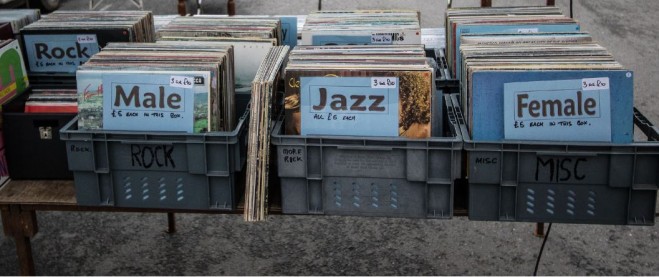
The Last Laugh
Gently he takes her hand,
a lover’s touch,
the fingers cool and pale as Ophelia’s;
the others hold their breath and wait.
The hand that consoled, and wiped away tears,
minded the fire and tended the loom;
created life and warmth, and helped a friend,
but still knew the moment to recoil,
would never now draw back
from such a love as this.
Gone the perfumed days of youth,
domestic smells of bleach and bathroom,
and now the last austere scent
is pungent and ascetic.
How sweetly skin and flesh part
beneath the scalpel’s bloodless kiss;
“And here we see the tendons of the hand…”
He demonstrates how they work;
but her finger showed what she really thought.
Pauline Harrowell
The Library Boat
Your media circus has no clowns
and no trapeze, but if it did,
I still believe this small crowd
would turn away to greet the boat
that nudges the banks of the Laos.
Celebrations begin, the children grin
welcomes to the crew of three
who unpack boxes of books. One boy
catches your attention, his hands
are like yours might have been once.
Reaching out, his pudgy thumbs
form pincers with his forefingers,
discovering adventures on each side
of the page and his eyebrows raise,
his mouth turns up at every new encounter.
He takes his book and sits in solitude,
savouring his haul – a small
curled hermit. Your camera goes on
filming him, until the light fades
and Cancer’s moon rises.
You bring me this boy’s silhouette
one stormy Sunday in December
as I contemplate a turbulent week ahead.
I watch as his book sails him far
from a place I’ll never visit.
And as he wrestles with unfamiliar words,
I wonder, if my tears are for that boy,
who has nothing, yet is satisfied,
or for myself, and this narrow,
cluttered life I have no chance of escaping.
Gill Lambert
———————————————————————————————————————————
Frith
I am at your thigh again
in an uncased, unlocked phone
pocketed in faded blue Levis
tight enough to speed dial me.
Footsteps, mutters, barking,
swish-swish and owl hoot.
Vexed shouts to our two dogs
who are playing up as usual
on the Frith Wood walk at dusk.
You cannot hear my yells,
and I am a helpless guardian
in a weekday hotel bedroom,
so after a minute I hang up
for fear of being your bad luck.
I could text, call you dearest clot,
but even that could be bad luck.
A punctiliously modern man,
I warn of risks of solo walking
but never insist that you stop.
You are insouciant, and I worry.
The basset hound and labrador
just lick the hands of strangers,
so I ask for the old wood’s help.
Frith is peace and sanctuary,
and, in Anglo Saxon theory,
nobody could harm you there.
Tony Hendry
You Wouldn’t Know …
That when he woke this morning
he turned and pressed against her,
she smiled in her sleep –
asked for five more minutes.
That he spilled his coffee, tie-dye
on the pristine white, he took
the staircase two steps at a time
to see her naked; stopped to kiss her.
That tender fingers tucked the label
in the collar of a clean shirt,
smoothed the fabric down over
the contours of his shoulders.
That when he crossed the road
and turned into the station,
he was looking at her picture;
her smile was all that he took with him.
That in the moment of the bomb blast,
he was thinking of his children,
the things they’d do that weekend,
though it was only Tuesday.
Gill Lambert

Straw to Gold
Skedaddle! Out with you, Brothers Grimm—
You and your scheming scimitars,
Your poisonous pouch of nightmares,
Your wicked sickle blades—get out, grim reapers!
Don’t peddle any grimy story near us here:
Of a nameless miller’s daughter dusty with corn husks,
Hair bleached fair as finest barley flour
Repeating her father’s shameless lie
To greedy royal ears that she could turn
The common straw to golden thread
When not one stalk could she so spin.
Go! Wind your broken spools of goblin yarn & take them off
Down stifling alleyways to other village inns
Where gullible fools believe such tales.
The boot’s now on the other foot, you know. It’s not
Poor womenfolk who spin the straw to gold these days:
Not mincing, soft-shoed cobblers’ lasses;
Not singed & sparky blacksmiths’ girls;
Not doe-eyed, millers’ daughters;
Today the hayfields’ wealth is spun to gold
By sinewy, sunburned men with furrowed brows
And crinkled eyes below a denim baseball cap,
Who sit aloft in spacious air-con harvesters
That thresh unbroken narratives
Down satellite-mapped alleyways of grass
And then spill out, spin out
The half-ton reels of gleaming bales:
Fine gold from summer’s yellow fields.
No Rumpelstiltskins spoil the party now:
Only a surly storm or two, glowering, scowling over downland cliffs & folds.
And—in between the hedges and the cottages—
Great curving, curling rolls of gold.
Lizzie Ballagher
last night
last night, moth to the flame
I open my medicine drawer
a litany of comfort
Fluoxetine Quetiapine Zopiclone
as pretty as posh girls’ names
fresh from finishing school
maybe a pack and a quilt
under a sliced moon and wait
for the tide, let driftwood currents
carry me away in silver lamé waves
cradled and tumbled in coral mansions
a rhythm of flux, a briny pavane
a fluid spell to break pain’s realm
like Lady Lazarus, my luck
run out, though not one in ten
gentlemen, ladies: my polished bones
my seaweed hair, my eyes that ebb
and flow, my brittle heels
my terracotta heart
out of the swell I rise like a siren
with a comb in my hair
into the singing air
Annest Gwilym
————————————————————————————————————————————–
Blackcurrants
This poem is a festival of the senses. It is rich in visual, tactile, auditory, savoury and olfactory imagery. The sounds are lush and joyous. An absolute delight in its evocation of sensory impressions and elegantly articulated emotion. Sumptuous sounds.
Bunty
Here we find a poem that evokes an era brilliantly, while simulataneously subverting our stereotypes regarding domesticity in the past. There are some wonderful images of a young female reader discovering ‘heroines that swept me off/on journeys, taking me away, out of my life.’ Feisty, intelligent, and sophisticated in its apparent simplicity.
And Lie Beneath
This beautifully crafted sonnet evokes loss with power and delicacy. There are some marvelous phrases and images here, e.g: ‘your spider’s touch like lace upon my cheek,’ ‘The naked window frames a tattered moon.’ Gentle and melancholy.
Caernarfon
This poem evokes remembered love so well. I particularly liked the short lines and Laurentian rhythms, which convey physical urgency, and the images of exploding fireworks and rainbow colours (rockets, Catherine-wheels) which evoke bedazzlement. Sexy and tender.
The Last Laugh
Witty and delightfully macabre. Initially, the reader expects to read a sentimental poem about a departed mother, only to discover that what we’re looking at here is a dissection taking place in front of an audience (possibly of medical students). In the poem’s third and final turn, as the surgeon slices through her hand, in a reflex reaction the corpse gives the doctor the Finger. I loved the way in which the rug is jerked out from underneath our own preconceptions not once but three times. I liked the wicked intelligence of this a lot.
The Library Boat.
This poem skillfully inverts the camera’s gaze (and the poet’s gaze), with its focus on a child filmed reading a book. In the ending, the direction of the lens is reversed to evoke the limitations of the poetic subject’s own life. Sophisticated and nuanced.
Frith
The first line of this poem (‘I am at your thigh again’) sets the scene beautifully, of a man who is physically distant from the woman he loves, who is concerned about her safety as a solitary walker, yet does not wish to rein her in by ringing her mobile phone. The appeal to Frith, to peace and sanctuary in the ancient wood, is delicate and tender, and describes so well one of the dilemmas of modern masculinity: how to reconcile our respect for the freedom of those we love, with our wish to keep them safe.
You Wouldn’t Know
This poem will haunt me for a long time. The juxtaposition of the sensuality of routine and of everyday life, with the bomb blast in the last sentence, evokes so vividly the fragility of all our lives and of our imagined futures. Powerful.
Straw to Gold
The poem begins with splendid invective: ‘Skedaddle! Out with you, Brothers Grimm–/You and your scheming scimitars/Your poisonous pouch of nightmares’ in order to challenge the myth of the beautiful virgin who could spin grain into gold, and to portray the reality of hard work in the fields, as well as the beauty and poetry, of farming today. So many lines jump out at the reader: my personal favourite is in the final lines (‘…in between the hedges and the cottages–/Great curving, curling rolls of gold.’
Last Night
A dark poem describing the infinitely seductive quality of thoughts of self-destruction. There are resonances of Plath here, but the poet takes this theme in new directions, e.g.: ‘Fluoxeline Quetiapine Zopiclone/as pretty as posh girls’ names/fresh from finishing school,’ ‘my polished bones/my eyes that ebb/and flow, my brittle heels/my terracotta heart.’
Susan Castillo Street is Harriet Beecher Stowe Professor Emerita, King’s College, University of London. She has published three collections of poems, The Candlewoman’s Trade (Diehard Press, 2003), Abiding Chemistry, (Aldrich Press, 2015), and Constellations (Three Drops Press, 2016), as well as several scholarly monographs and edited anthologies. Her poems have appeared in Southern Quarterly, Ink Sweat & Tears, Messages in a Bottle, The Missing Slate, Clear Poetry, Three Drops from a Cauldron, Foliate Oak, and other journals.
————————————————————————————————————————————
———————————————————————————————————————————
———————————————————————————————————————————

